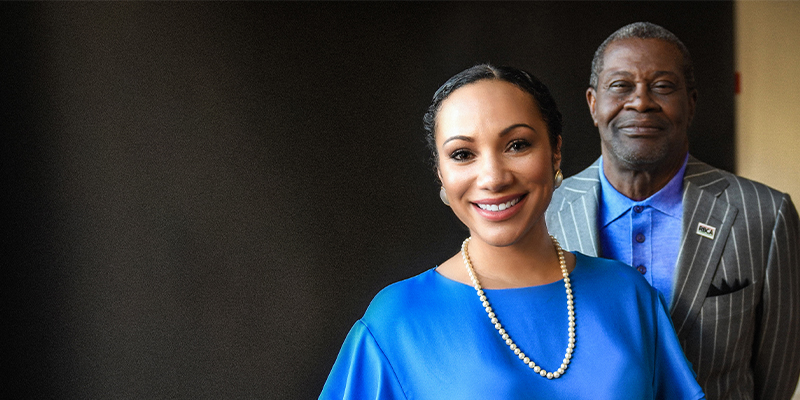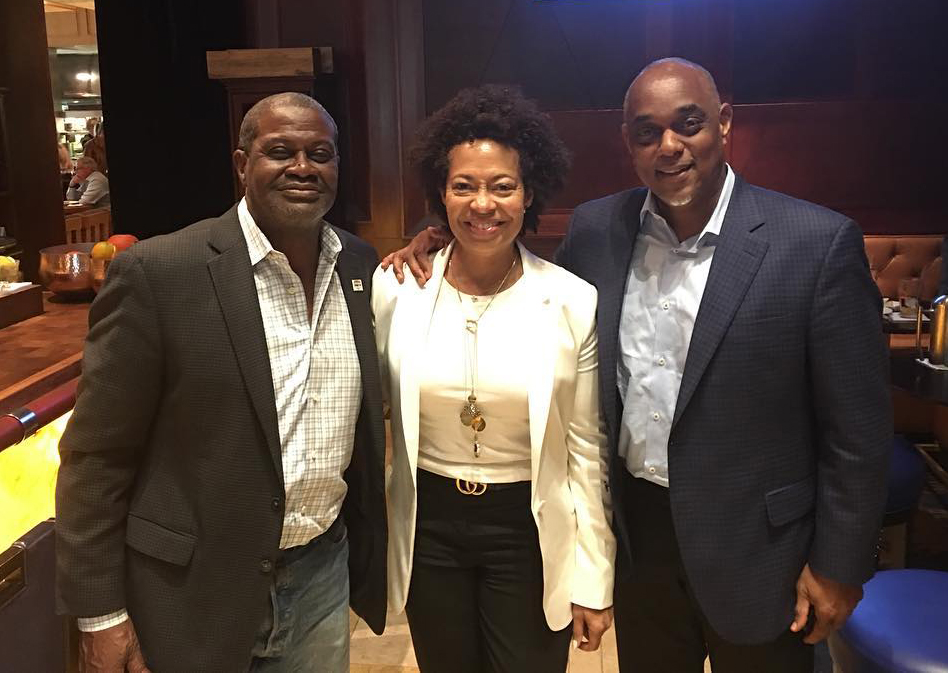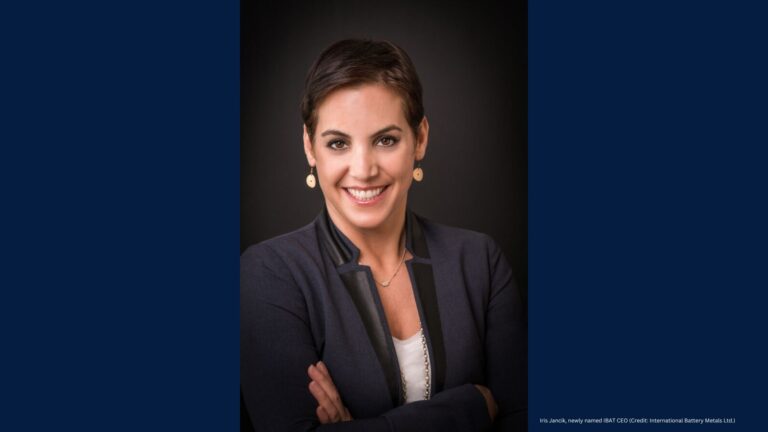
The Advocate Advancing the Development and Growth of Houston Black-Owned Businesses
There are now more than four million minority-owned companies in the U.S., with annual sales totaling almost $700 billion. According to the U.S. Senate Committee on Small Business and Entrepreneurship, over the last 10 years, minority business enterprises accounted for more than 50 percent of the two million new businesses started in the United States and created 4.7 million jobs. We can be hopeful of the promise for a more level playing field for minority-owned businesses, but not complacent, as there are still great strides that need to be made to encourage and strengthen the minority business community.
The Harris County Disparity Study 2020 highlights the disparity in Houston for Black contractors, with just 9.1% of Harris County’s contracts with minority-owned and women-owned businesses, compared to a 28.4% market share, and 0.5% of the county’s contract dollars going to Black-owned businesses. And According to the U.S. Bureau of Labor Statistics, there is an evident lack of diversity in this industry, as African Americans make up 6% of architects and engineers and 6% of construction workers.
There also remains an imbalance when it comes to access to capital, contracting opportunities, and other entrepreneurial development opportunities for minority-owned firms. Minority-owned enterprises achieving sustainability and longevity is valuable for the local and national competitive advantage. Diverse business ownership is essential to our nation’s continued economic success and growth. Advocating for the development and growth of Black-owned businesses is the Regional Black Contractors Association (RBCA).
“We are community-value oriented. We fight to get Black contractors working, which means in preconstruction and contracting, for the purpose of hiring other Black people and training them. That’s the strategic partnership. That’s the only plan we got. It never changes. Never.” – Chairman of Regional Black Contractors Association John Proctor
Under the leadership of John Proctor, chairman and Kimberly Shaw, president and CEO, the RBCA remains a very effective partner for minority-owned businesses and entrepreneurs, working their relationships with state, municipal, and corporate leaders and their supplier diversity executives, elected and appointed officials all for the cause to support African-American business development.
Locally, statewide, and in Washington, DC, the RBCA stays active and committed in monitoring pending legislation that might affect their member’s businesses and growth. With a proactive and strategic approach, the RBCA quickly mobilizes to work with key policy makers to support and ensure that every opportunity is available for the RBCA and its membership.
Today, the RBCA is the premiere African American construction member services organization serving a membership base of 100 plus that includes:
- Architecture/engineering trades firms
- Owners
- Developers
- General contractors
- Construction management firms
- Subcontractors
- Real estate firms
The RBCA, headquartered in Dallas, TX, now has an office right in the heart of our city, allowing it a more personal approach to serve businesses in Houston and the surrounding areas. With the opening of their office, the RBCA is empowered to make an even greater impact with its implementable solutions combating inequality for Black business owners.
Q&A with the RBCA:
SUBC USA: What are some of the main challenges you have seen African American businesses and contractors face in this industry, and how do you help them overcome these challenges so they stay competitive?
RBCA: We have found that access to capital and opportunities are the major challenges African American businesses encounter. However, RBCA’s team building model allows our members and partners to stay in the game. We collaborate with decision-makers to ensure bonding and procurement criteria is inclusive and yields more Black contractors on teams. An example of this would be utilizing subguard insurance, incentivizing teaming structures that drive toward the goal, and adjusting experience requirements to compliment the market availability. Our webinar series keeps members up to date with opportunities and other resources to help their businesses succeed.
SUBC USA: Houston is one of the most diverse cities in the nation, so we think that there’s a more level playing field here. But what has your organization seen that this Houston office is needed to support minority businesses in this area?
RBCA: Houston is a consultant-based city. And the RBCA wants to turn Houston into a skilled performance-based city. This office in Houston enables us to be on the ground in order to achieve this, working with political and community leaders and partners in Houston and the surrounding areas. We are appreciative that Mayor Turner and Commissioner Rodney Ellis understand this.
SUBC USA: What does this Houston office mean for not only our city and local businesses, but for the state as well when it comes to expanding your organization’s advocacy efforts for minority businesses?
RBCA: We have to create and build capacity amongst the contractors that are here locally like we have done and continue to do in DFW. This means increased job opportunities for Blacks and growing minority businesses. Some of our members who started out doing painting and drywall are now bonding $10-15M as prime firms, also employing ex-offenders with opportunities so they can have the foundation to become financially independent and contribute to our local and national economy.
SUBC USA: What are some challenges African American businesses and contractors have faced during the pandemic, and how has the RBCA been proactive in providing support to these businesses?
RBCA: Black contractors and businesses were in a pandemic before COVID-19. Black businesses have been attempting to meet payroll and keep businesses afloat for a long time. It’s just that the pandemic has shed light on the issue. But now that the pandemic has affected all ethnicities, there is a heightened sensitivity to the issues Black business owners have been facing. But because of our relationships with key decision-makers, a solution is just a phone call away. For example, if there are payment delays, it just takes one phone call to the chairman, CEO, or developers for the bottleneck to be taken care of. We have been blessed that construction remained essential through the pandemic, which is a lifeline to so many. And the RBCA has worked with county commissioners, judges, and other advocacy groups to ensure we could remain open for business, adhering to the strict safety measures. Some of those safety measures called for increased costs, however, the PPP and EIDL were also a lifeline to several businesses, and we thank the Trump administration for that.
SUBC USA: How has the RBCA adapted and pivoted during the pandemic to continue to support African American and minority businesses and contractors?
RBCA: The RBCA, like almost all organizations, has shifted to a virtual environment that allows us to stay in communication with our membership and partners. We host educational webinars and networking events through online platforms, and it has also encouraged us to be more innovative with the marketing and services that we offer. With vaccinations on the rise, we are moving to a hybrid model that will include in-person networking events for those who are comfortable (but still following safety precautions approved by the CDC). Now that we know the convenience and flexibility the virtual world offers, it’s hard to “unknow,” therefore we will still use that medium as a method to stay connected in the future.
SUBC USA: Though there are more opportunities for African American businesses and contractors, where in RBCA’s work have you seen where improvements can be made to make it a more level playing field for these businesses?
RBCA: There has to be a focus on equity when establishing policies and RFPs. Mentor/protégé programs must focus on all levels of the scale, and not exclude firms with zero to three years of experience. Businesses should be judged based on their ability, not whether they have generations of experience. In that scenario we will lose every time. When you think about the economy, you have capitalism and consumerism. Black people are consumers of many private and public institutions, but when it comes to business, they can’t get a fair opportunity. We have to demand more in order to secure the capital and opportunities that will help minority businesses and contractors reach full capacity.
SUBC USA: Can you please give our readers an example of the RBCA’s advocacy efforts, with a successful outcome?
RBCA: A successful outcome is when there is Black participation across the board and a true intent to build capacity. An example of our advocacy efforts are joint ventures or teaming agreements at each stage in development of a project incorporating RBCA’s Second Chance Hiring Program that trains formerly incarcerated individuals with a construction focus. We look forward to this partnership on projects in Harris and the surrounding counties.
SUBC USA: What does it mean on a larger scale/what’s the bigger picture when minority businesses succeed?
RBCA: When Black people hire other Black people, the community as a whole benefits. And as our membership understands this, they hire one another. RBCA members hire graduates from our Second Chance Hiring Program, which results in jobs with livable wages for individuals to take care of themselves and their families. Minority businesses succeeding strengthens the family unit, increases the taxpayer base in underserved communities, and decreases crime. Black businesses being sustainable and profitable allow them to contribute financially to outreach efforts, like our Senior Home Repair Program, which helps disadvantaged senior citizens with home repair at no cost to them. When our businesses are prosperous, we can provide resources to help our communities stay viable.
SUBC USA: Is there anything else you would like our readers to know about the RBCA?
RBCA: The RBCA is a faith-based program, standing on the foundation that God will give us everything we need to provide the tools to build Black contractors in this system that will hire Black people. With the overwhelming statistics proving contracting disparities nationwide and in Harris County, we are committed to being servant-leaders for Black and minority businesses and contractors, uplifting the community, decreasing crime, and connecting people with a second chance to succeed. The RBCA is the parent organization. Our 501c(3) subsidiary, the RBCA Community Development Corporation is where our community outreach programs are housed, programs that serve vulnerable populations that include ex-offenders, seniors, and youth in at-risk areas. Our membership is welcome to all. You do not have to be African American to join the RBCA. Our membership base consists of many ethnicities who all believe in a bigger purpose of “helping others help themselves.”
National Public Radio (NPR) affiliate Houston Public Media reported that The Port of Houston’s recent independent disparity study by Griffin & Strong PC showed that women-owned and minority-owned businesses are grossly underrepresented in the port’s procurement process. The study found less than 0.1% of construction contract dollars go to Black-owned firms, even though they represent about 15% of the market. The port is using this independent study to support the strengthening of its small business enterprise program as it makes efforts to increase contracting with women-owned and minority-owned businesses. But while studies like this raise awareness for an organization, it also demonstrates a need for the RBCA Houston office, allowing the association to be present in our city as an advocate and partner, reversing economic disproportion here for Black businesses so they are sustainable and utilized in this industry.
With so much more work to do advocating for minority businesses, also supporting them in reaching their full capacity, the RBCA’s message to Houston businesses is, “We are here!” The RBCA, leading with integrity, community outreach efforts, and excellence, is the premiere African American construction member services organization advancing the development and growth of African-American owned businesses. A paramount establishment working on implementable and proven solutions, the RBCA is the bridge enabling the meaningful and sustainable inclusion of African American construction business professional services and trades firms in this industry.
The Houston office opened in January of this year and is located at 2418 Elgin Street. To make an appointment with a representative at the RBCA Houston location, please email RBCA@Blackcontractors.org. For more information about the RBCA and its upcoming events or to become a member, please visit www.blackcontractors.org.









